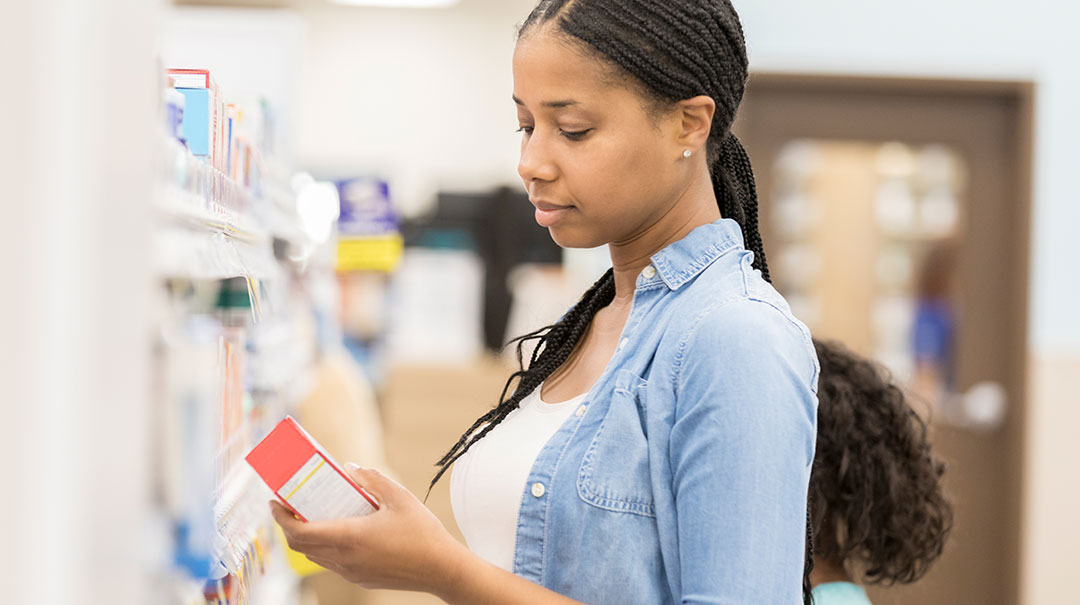Conventional pain medications may not take away all of your pain. If you’ve suffered a severe injury or had a major operation or medical procedure, chances are you were prescribed opioids to manage your pain. The goal is to control your pain while you heal, and it’s normal to still feel some pain. Taken under the strict supervision of your healthcare provider, opioid medications are safe and effective. But caution is required, because of their addictive qualities and the added concern of the opioid overdose epidemic that is plaguing our state. Here are important facts you should know about opioids and safety tips for properly using, storing, and disposing of them.
What are opioids?
Opioids are a class of drugs used to reduce pain. Opioids are often prescribed to treat severe pain for serious medical conditions, such as cancer. This article does not address taking opioids for these serious conditions, but focuses on treatment for an episode of acute pain, such as you may experience following surgery or an injury. Common types of opioids are oxycodone (OxyContin), hydrocodone (Vicodin), morphine, and methadone.
What are the side effects of overuse or addiction?
- Tolerance—meaning you might need to take more of the medication for the same pain relief
- Physical dependence—meaning you have symptoms of withdrawal when the medication is stopped
- Increased sensitivity to pain
- Constipation
- Nausea, vomiting, and dry mouth
- Sleepiness and dizziness
- Confusion
- Depression
- Itching and sweating
How much medicine should I take?
Follow the directions on the bottle. It is not safe to take a larger amount (dose) or more frequently than your doctor prescribed for you. Taking less is OK if it controls the pain. As you heal, you should be taking less as time goes on. These medicines can have serious side effects and can cause you to become addicted. Taking any medicine in a larger amount or more frequently than prescribed could cause you to overdose or die. You may take opioid medicines for moderate to severe pain. You also can try other things, like using heat or ice, which may also relieve your pain. Talk to your healthcare provider about other medications and what is likely to work best for you.
You should notice that you need less opioid medicine as you start to feel less pain. You should reduce the amount of opioid medicines each day as your pain gets better. This may mean taking a smaller dose each time, or waiting for a longer amount of time between each dose you take. This is called tapering. If you feel like your pain is not at a comfortable level, or is getting worse, call your doctor.
Where should I keep my medicines?
Keep these medicines in a safe and secure place, away from other people in your family, children, visitors, and pets. Do not let other people take or use your medicines. This is not only very unsafe, it is against the law.
How do I stay safe while taking these medicines?
- Do not drive, operate machinery, or drink alcohol while taking opioid pain medicines.
- Check with your doctor before taking any other medicines that you did not talk about before you left the hospital.
- Tell a friend or family member that you are taking these medicines and to call 911 if they are worried you are more sleepy than normal or it is hard to wake you up.
- Your doctor may give you naloxone (Narcan®), which is a medicine that can quickly reverse an overdose of opioid pain medicines. Tell a friend or family member that you have this and to be ready to give it to you after calling 911.
What should I do with my opioid medicines after I stop using them?
If you are no longer using your opioid medicines, get rid of what is leftover. Here are safe ways to do this:
- Find your local drug take-back program or your pharmacy mail-back program.
- Go to FDA.gov/Drugs/ResourcesForYou and follow the instructions from the federal Food and Drug Administration.
- If you cannot get the leftover medications to a take-back program right away, flush them down the toilet.
For more information on opioids, go to CDC.gov/DrugOverdose/Opioids.
Want to find out what MedStar Health is doing to address the opioid overdose epidemic in Maryland?
Click the button below to learn more.
Learn More

